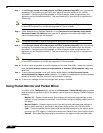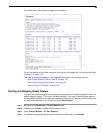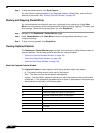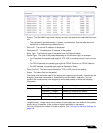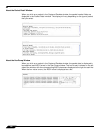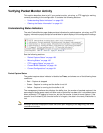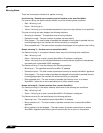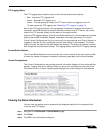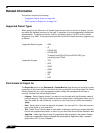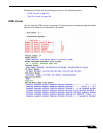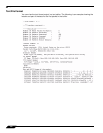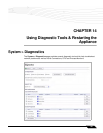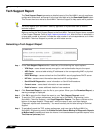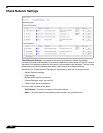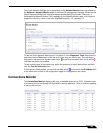
System > Packet Monitor
162
SonicOS 5.8.1 Administrator Guide
Related Information
This section contains the following:
• “Supported Packet Types” on page 162
• “File Formats for Export As” on page 162
Supported Packet Types
When specifying the Ethernet or IP packet types that you want to monitor or display, you can
use either the standard acronym for the type, if supported, or the corresponding hexadecimal
representation. To determine the hex value for a protocol, refer to the RFC for the number
assigned to it by IANA. The protocol acronyms that SonicOS Enhanced currently supports are
as follows:
File Formats for Export As
The Export As option on the Dashboard > Packet Monitor page allows you to display or save
a snapshot of the current buffer in the file format that you select from the drop-down list. Saved
files are placed on your local management system (where the management interface is
running). Choose from the following formats:
• Libpcap - Select Libpcap format if you want to view the data with the Wireshark network
protocol analyzer. This is also known as libcap or pcap format. A dialog box allows you to
open the buffer file with Wireshark, or save it to your local hard drive with the extension
.pcap.
• Html - Select Html to view the data with a browser. You can use File > Save As to save a
copy of the buffer to your hard drive.
• Text - Select Text to view the data in a text editor. A dialog box allows you to open the buffer
file with the registered text editor, or save it to your local hard drive with the extension .wri.
• App Data - Select App Data to view only application data contained in the packet. Packets
containing no application data are skipped during the capture. Application data = captured
packet minus L2, L3, and L4 headers.
Supported Ethernet types:
• ARP
• IP
• PPPoE-DIS
• PPPoE-SES
To specify both PPPoE-DIS and PPPoE-SES, you
can simply use PPPoE.
Supported IP types:
• TCP
• UDP
• ICMP
• IGMP
• GRE
• AH
• ESP



